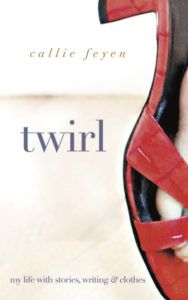I am writing this piece on the 33rd day of the partial government shutdown. My husband, a man who quietly does his work but probably has more knowledge about water and its capabilities than anyone in the universe, is furloughed. He has not been paid in over four weeks.
I am worried. I am sad. Most of all, I am angry. I am so angry that I am jealous of the kindergarteners I see who throw themselves on the floor, yell, scream, and run down the hallways halting all school business until what it is they need to say and feel is complete.
I have tried to write about this, but everything that comes out is disrespectful. It is whiny, with no form at all. So the other day, when I was mapping out poetry posts for Monday prompts, I came across L.L. Barkat’s Jealous Poem Stacks. I clicked on it, hoping to find a way to feel something other than anger. Instead, I learned she welcomes these emotional “red flags.”
“It’s true. I love this red flag: jealousy,” she admits in her first sentence. She goes on to write, “Jealousy is that piquing of the soul: ‘I’m not happy. I want. Why not me?’ It’s a key which I never, ever throw away (nor chide myself for). You could say I honor emotions for what they try to tell me — rather than judging them, feeling guilty, or sweeping them aside. As humans, we’re built to feel. I like to pay attention.”
Okay, fine, I thought. I’ll pay attention to my anger. Now what? I need to do something with it. Enter the Jealous Poem Stacks. L.L. writes down words she loved from poems she was jealous of. She makes a stack — not a poem — but, as she writes, it is the beginning of something.
I liked that. Creating the beginning of something sounded good, playful even. I’d just received a copy of my friend Melissa Reeser Poulin’s new chapbook, Rupture, Light, and thought maybe she’d have some words that would help me name how I feel. I used that book and Frederick Buechner’s Speak What We Feel: Not What We Ought to Say, a book my dad gave me for Christmas in 2001, to help me with my Angry Poem Stack. What I came up with is a mash-up of words from Melissa, Buechner, Mark Twain, and Gerard Manley Hopkins.
Each carries work,
whether it fits
in a lifetime
or not
The twilight chases round me,
My head is bowed before
the universe
You don’t need
my worries,
unskilled, unwilling
to wait through
the night
By and by, as the days and
weeks go on, first he
misses this, then that,
then the other thing.
Does nobody see?
they swallow the night
the gray wakes on my chest
I shake with it
In the introduction to his book, Buechner writes, “It takes a certain kind of unguardedness, for one thing, a willingness to run risks, including the risk of making a fool of yourself.” I believe when he says it, he means writing vulnerably. He calls writers who do this “vein-opening writers.” And in Melissa’s words about rumination, on bringing her chapbook forth, she writes, “I felt that I would not be able to write new poems until these poems had arrived safely in the world.”
I understand both of these sentiments: the urgency to write and the acceptance that I will make myself a fool. It seems that to pay attention, to be swept away with the heftiness of emotion, is the foolish beginning we all need in order to create the story that must be told.
Try It
You don’t have to be angry or jealous to write a poem stack, but this week pay attention to an emotion that is difficult to express or feel. Read through your favorite poems and books, and pull words and phrases that help you begin something.
Featured Poem
Thanks to everyone who participated in last week’s poetry prompt. Here’s one from Laura Brown that we enjoyed:
Cabin on a hill.
Two people and one dog walk
their land’s wild edges.
—Laura Lynn Brown
Photo by Peter Taylor, Creative Commons via Flickr. Post by Callie Feyen, author of Twirl: my life with stories, writing & clothes and The Teacher Diaries: Romeo and Juliet.
A Writer’s Dream Book

—Sarah Smith, Executive Editor Prevention magazine; former Executive Editor Redbook magazine
- Poetry Prompt: Courage to Follow - July 24, 2023
- Poetry Prompt: Being a Pilgrim and a Martha Stewart Homemaker - July 10, 2023
- Poetry Prompt: Monarch Butterfly’s Wildflower - June 19, 2023

Megan Willome says
Linking to this in the Writing Toward Joy workshop, Callie. Thanks for being so timely. 🙂
Callie Feyen says
Thanks, Megan!
Maureen says
They storm and they thunder
the stars amassed
on the blanket of the sky
their distress
I hear in my voice
contagious with questions
shaking with fear
so tired and worn
you no longer listen
departure
cannot be described
till the day
the road of love has changed
The words above come from a number of poems in ‘Gathering the Tide: An Anthology of Arabian Gulf Poetry’ (Ithaca Press, 2011).
Callie Feyen says
I’ve always been curious and apprehensive (or maybe ashamed is the right word) about my anxiety toward asking questions. I don’t understand it, but I can’t stop the feeling that comes over me when a question begins to bubble within. Your line, “contagious with questions” articulates this feeling, and being able to understand how I feel makes it easier for me to continue to ask.
Monica Sharman says
Where it met a curve in the gravelly road
the wagon, too fast, turned enough to teeter
for just a moment on two rusted wheels —
a moment long enough to throw me,
keep me moving on the tangent line before the curve
onto the rashing dirt of a road.
Take me to another poverty,
a fellow slave,
a new escape,
and circle me
back on my own
new roads.
Callie Feyen says
I have been thinking about this line for a time now: “Take me to another poverty.” What a startling command, and to think of it as a “new escape.” I am wondering now about poverty and escape and the beauty that can be found in it.
rob kistner says
I now move in the world unseen
I am transparent
a fading glimpse
caught in the darkened corner
of an ever dimming eye
where once I blocked the sun
I am but a shadow
moving between shadows
at the edge of light
without form
once a voice
that thundered ‘cross the distance
gripped every ear to listen
in so doing was well heard
now hardly but a whisper
my footsteps
shook the ground in passing
now leave but faint a trace
barely form and then are gone
as if I’ve never been
yet here I am
worn thin and weary
not strength to hold the hands of time
not sound to bid a fair goodbye
quickly disappearing
dissolving into the dust of age
gone before I left
rob kistner © 2019
Callie Feyen says
“caught in the corner/of an ever dimming eye” – ah, what sorrow but what an image!
Pranjulaa Singh says
My email beeps.
Its my stalker again.
How many times?
How many times?
Would it be?
Before there is no crease?
How many months will pass?
You leave my past.
How many roads shall we cross?
before we go our separate ways.
leave me.
let me be.
I am tired of hiding.
I want to shine.
It is time for me to be me.
Leave me.
Let me be.